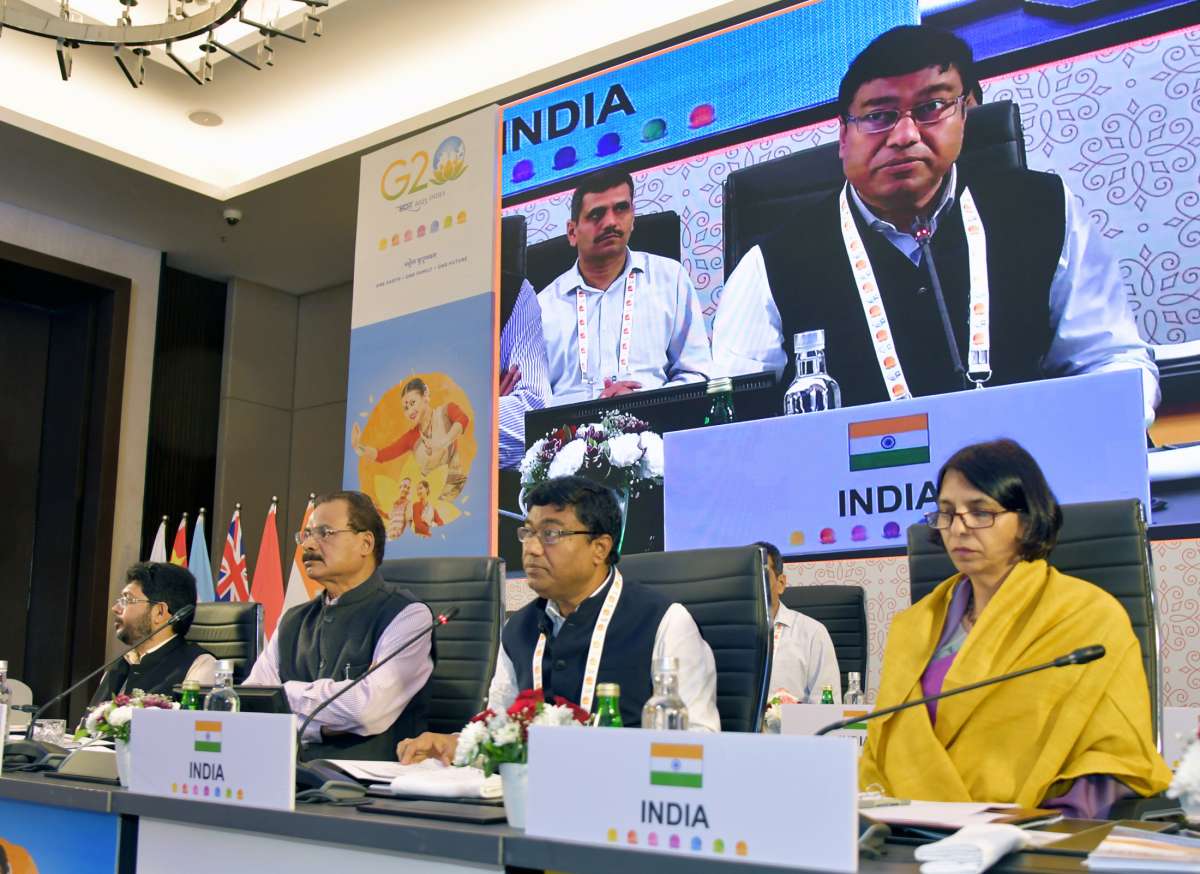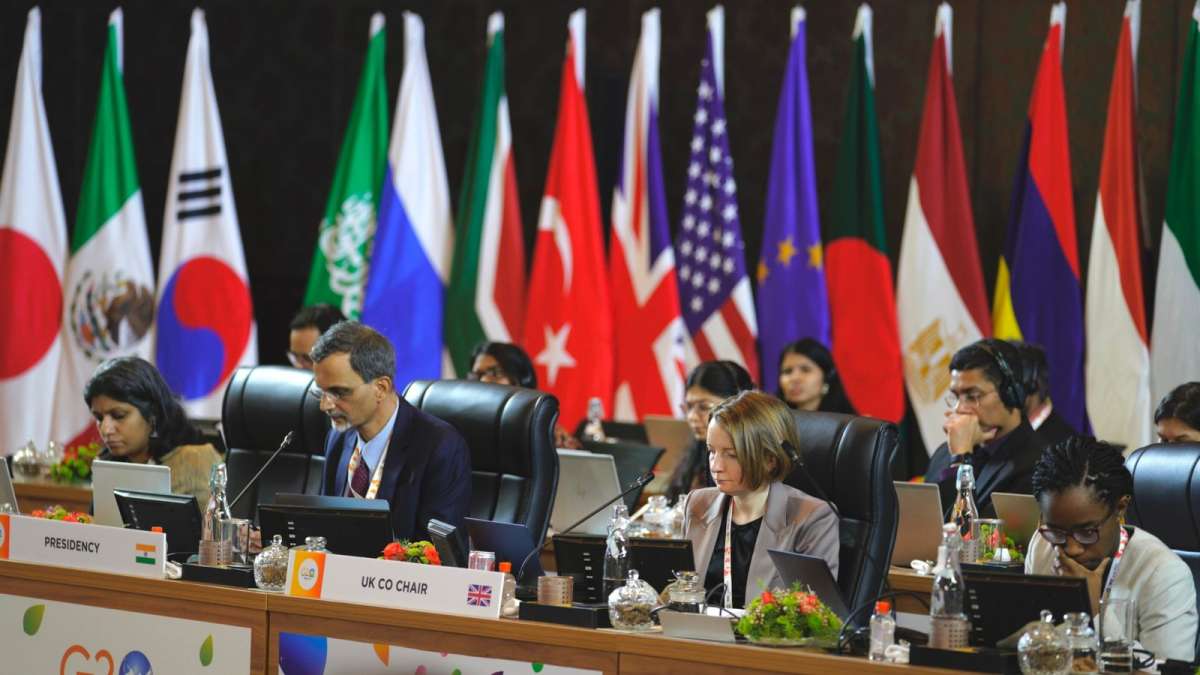The three areas include Addressing Global Skill Gaps, Gig and Platform Economy, and Social Protection, Sustainable Financing of Social Protection…reports Asian Lite News
The Second Employment Working Group (EWG) Meeting under India’s G20 Presidency started in Guwahati on Monday.
The three-day event which will continue till April 5 has seen a gathering of over 19 G20 member countries, seven guest countries and five International Organisations. The inaugural session of the Second Employment Working Group (EWG) meeting under the aegis of India’s G20 presidency was held in Guwahati today.
Union MoS for Labour and Employment Rameswar Teli, Assam Minister Chandra Mohan Patowary, and delegates of G20 were present in the inaugural session of the 2nd Employment Working Group (EWG) meeting.
The delegates will deliberate on labour, employment and social issues for strong, sustainable, balanced, and job-rich growth for all.
Ministry of Labour and Employment (MoLE), Government of India is the nodal ministry for the Employment Working Group under the Indian presidency of G20.
The G20 EWG’s second meeting is a crucial step towards building consensus on the outcomes of the three key priority areas for EWG 2023 under the Indian Presidency.
The three areas include Addressing Global Skill Gaps, Gig and Platform Economy, and Social Protection, Sustainable Financing of Social Protection.
The first day of the meeting comprised sessions focused on different priority areas such as by the Education Working Group, Digital Economy Working Group, Finance Track, G20 Entrepreneurship Research Centre, and the L20 and B20 Chairs.
During the 2nd EWG, a discussion will take place on Ministerial Communique and the outcome documents to arrive at a consensus.
The communique is key to defining the future direction of the global economy through its eventual implementation in the G20 nations.
The three-day meeting of G20 EWG will also comprise events showcasing the cultural heritage of Assam. (ANI)


